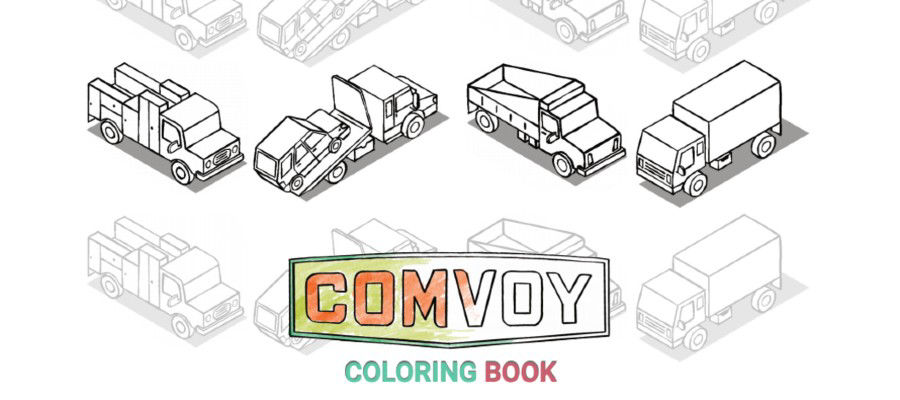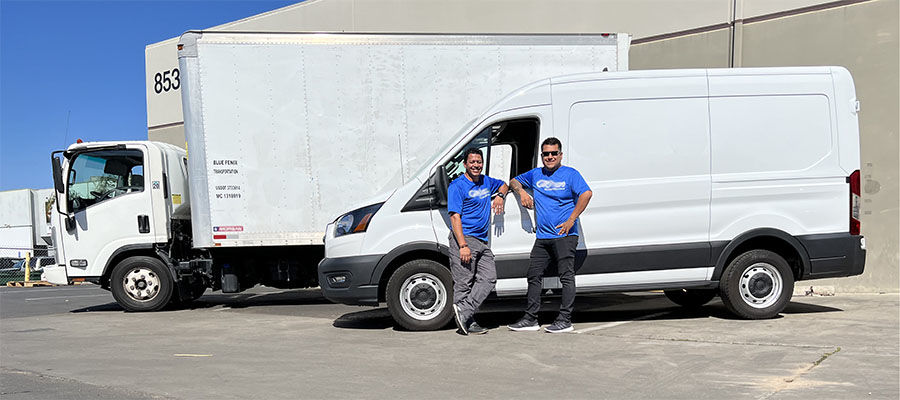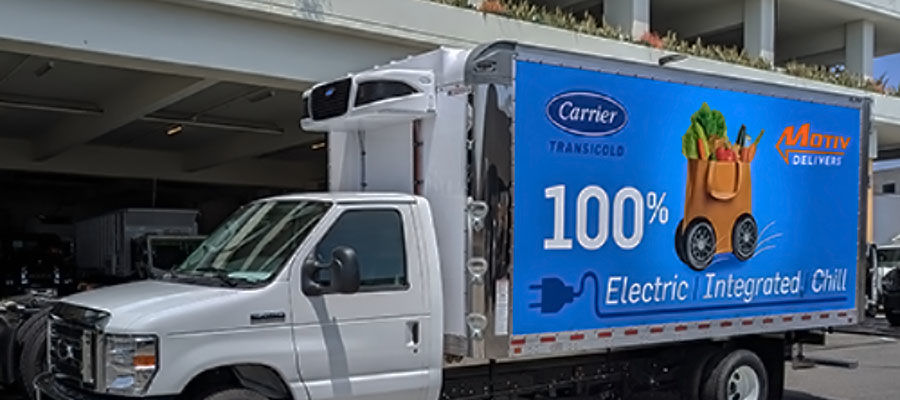Used 2019 Hino 268A Single Cab 4x2, 26' Box Truck
- VIN
- 5PVNJ8JV3K4S73344
- Stock #
- 578173
- Mileage
- 165,698
- Cab Type
- Single
- Drivetrain
- 4x2
- Rear Wheels
- DRW
- Fuel Type
- Diesel
- Transmission
- Automatic
- Body Length
- 26'
| Call For Pricing |
Leawood, KS
| Call For Pricing |
| Call For Pricing |
| Call For Pricing |
| Call For Pricing |
| Call For Pricing |
| Call For Pricing |
| Call For Pricing |
You haven’t viewed any vehicles yet.
Box trucks are the most versatile commercial vehicle on the road. Common uses include deliveries (furniture, appliances, groceries), moving, equipment transport, catering, and construction work.
Price depends on size, brand, features, and condition. Expect a range of $10,000 for used basic light-duty models to over $150,000 for new, fully equipped medium-duty trucks.
Cargo capacity ranges from around 100 cubic feet to over 1,000 cubic feet. The box body can vary in length, height, and width, too. The most common box truck lengths range between 12’ to 26’.
Most box trucks have rear roll-up doors, but some have swing doors, side doors or even hydraulic liftgates. Walk ramps are common for easier loading and unloading, too. Box trucks are often loaded and unloaded using a combination of hand trucks, pallet jacks, and forklifts.
Keeping your cargo secure in a box truck is essential for safety, preventing damage, and ensuring a smooth trip. Some of the best cargo control equipment options are ratchet straps, chain tie-downs, wheel chocks, load bars, and cargo nets.
It depends on the truck's GVWR. Class 3 typically requires a regular driver's license, while Classes 4-7 might need a Class B or C Commercial Driver's License (CDL).
Varied Sizes: Box trucks come in a range of sizes, typically from 10 to 26 feet in length, catering to different hauling needs. Versatility: Box trucks are highly versatile and used in various industries, including moving, delivery services, and mobile businesses. Separate Cargo Space: The cargo area is completely separate from the driver’s cab, offering secure and protected storage. Easy Customization: Box trucks can be customized with shelving, refrigeration units, or branding wraps to suit specific business needs. Fuel Efficiency: Smaller box trucks are often more fuel-efficient than larger commercial trucks, making them cost-effective for local deliveries. Loading Convenience: Box trucks typically have roll-up rear doors and sometimes side doors, making loading and unloading more convenient. Urban Friendly: Due to their size, box trucks are more maneuverable in urban areas compared to larger tractor-trailers.
Size and Capacity: Choose the right box truck size based on the volume and weight of the cargo you plan to transport. Ensure the truck can handle your typical load requirements. Engine Power and Fuel Efficiency: Evaluate the engine power of the box trucks to ensure it meets your needs, especially if you’ll be driving long distances or carrying heavy loads. Consider fuel efficiency to manage operating costs. New vs. Used: Decide whether to buy a new or used box truck. New box trucks come with warranties and the latest features, while used trucks are more cost-effective but may require more maintenance. Condition and Maintenance History: For used box trucks, check the maintenance history and overall condition, including the engine, transmission, brakes, and tires. Look for signs of wear and tear or potential issues. Customization Needs: Consider any customizations you may need, such as shelving, refrigeration units, or branding. Ensure the box truck can be easily modified to suit your specific business requirements. Budget and Financing: Determine your budget, including the purchase price, financing options, insurance, and ongoing maintenance costs. Factor in any additional costs for customization or repairs. Manufacturer and Model Reputation: Research the reputation of different manufacturers and models for reliability, durability, and ease of maintenance. Ask for recommendations and reviews from trusted industry peers when selecting buying your box truck. Warranty and Support: Check the warranty offered by the manufacturer or dealer. Ensure there is good support for parts and service, especially if you are buying a new box truck. Resale Value: Consider the potential resale value of the box truck. Some brands and models retain their value better than others, which can be beneficial if you plan to upgrade in the future.
Box trucks are available in many different sizes and you should select the size depending on your current and most importantly future needs. Some sizes of box truck trucks include: 16ft, 18ft, 20ft, 22ft, 24ft, and 26ft. For reference, a u-haul dry van can vary between 10ft to 26ft in size.
At Comvoy we understand that different vehicle brands fill the needs of different people. Ford has many vehicle options for several purposes ranging all the way from medium duty pickup trucks to tractors. Explore our website to find all types of Ford vehicles including: the Ford e350, Ford e450, Ford super duty, or the Ford transit.
The choice between a V6, V8, or V10 engine for a box truck depends on the intended use. A V6 engine is typically sufficient for light to moderate loads and better fuel efficiency. For heavier loads and more demanding tasks, a V8 engine provides more power and torque, ensuring better performance and durability.
There are many things you should consider when purchasing a vehicle. Considering the warranty, maintenance history, mileage, fuel type, miles per gallons, and the money required to purchase the vehicle are important to know before making a decision.
A stepvan is essentially a walk-in van used for doing quick and multiple deliveries. On the other hand, a box truck is used for managing heavier loads and to haul cargo over longer distances.
Box trucks are commonly used for moving, delivery services, and transporting goods for businesses. They are favored for their enclosed cargo space, which protects items from weather and theft.
Yes, box trucks can be driven in residential areas, but there may be local regulations regarding weight limits, parking, and delivery times. It's important to check local ordinances to ensure compliance and avoid fines.
Box trucks typically use either gasoline or diesel fuel, with diesel engines being more common for larger, heavy-duty models due to their greater fuel efficiency and torque. Some newer models may also offer alternative fuel options, such as natural gas or electric power.


